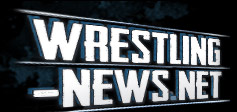VOC Nation sent out the following:
Former WWE backstage interviewer and commentator Ken Resnick sat down with the VOC Wrestling Nation to discuss the differences between today and the 1980s, the WWE Network, and the lack of enthusiasm in the current storylines heading into Wrestlemania 30.
Here is a sample of what the former WWE and AWA talent had to say:
On his work after leaving WWE in 1987: “After I left WWF, I was out of wrestling for a bit. I did the LPWA, which was a women’s league that foreshadowed today’s “divas”. It was a little ahead of it’s time; program directors back in that day weren’t warm to the idea of women beating up other women. I also did roller jam for a little while.”
On being back on TV with the WWE Network Archives: “A lot of people have reached out to me on Facebook, reminding me of things that I had long forgotten. Someone recently reached out to me about work that I did on commentary with Gorilla Monsoon; that was a nice trip for me down memory lane.”
On whether talent should be paid when they appear in WWE Network archives: “I thought about it just a little. I don’t have a copy anymore of the contract I signed back then, but I’m guessing that residuals aren’t in there because it wasn’t (relevant) back then. I give credit to our former Governor here in Minnesota (Jesse Ventura); he was really the only one who went head to head with Vince and beat him on residuals. At some point maybe that will resurface.”
On WWE going against the cable companies: “Showing the PPVs on WWE Network means that they aren’t going to have to share the revenue with the cable systems, who typically got fifty percent. They’re going against the grain, challenging cable providers who relied on that revenue stream from WWE; it’ll be interesting to see how that plays out.”
On the differences between WWE and AWA: “Everything we did in the WWF was so focused on promoting the next house show, TV show, or merchandise. Vince was focused on bringing that revenue stream to the forefront (of production). In the AWA, we just went (week to week with no focus on marketing).”
On the differences between the 1980s and today: “Everything we did, there was so much spontaneity both in the ring and on the microphone. That part of the business is gone. On the other hand, some of the high impact moves that are part of today’s shows, the guys (in the 80s) wouldn’t have had the conditioning to do that.”
On the current product: “I didn’t like the bit between Triple H and Daniel Bryan, where Hunter was beating him up while he was handcuffed. The crowd was just watching; they weren’t really into it or reacting to it. The people writing aren’t in the business. The whole angle was a direct takeoff from Occupy Wallstreet. I just kind of scratched my head a little bit (at the choice of storyline).”
On watching the WWE grow: “The WWE has truly gone from a wrestling company to an incredible television production entity, producing 6 new shows a week, 52 weeks a year. That is truly astounding.”
On the lack of places for talent to work: “Not only is there nowhere else to go, but there’s nowhere else to go where they can come close to making what they make in WWE. Talent in the past had options, and because of that, they had a voice in the direction of their character. Because of the (WWE being a monopoly), the talent has no voice.”
On the WWE’s top star following Wrestlemania 30: “I would have thought Daniel Bryan, but based on the way they’ve handled him, it doesn’t look like he has the respect within the company that he probably should. If I was going to put money on it, I would say John Cena. I don’t know of anyone else that they’d feel (comfortable) with.”
The VOC Nation Radio Network was born out of AM Radio in Philadelphia, and has grown into one of the largest and most successful modern media networks in the world. A recent merger with the popular IN THE ROOM Internet Radio Network brought average monthly listener counts above 60,000. The VOC Nation Radio Network’s roots began in pro wrestling with the VOC Wrestling Nation drawing tens of thousands of weekly listeners at WNJC Philadelphia. In 2012, Bruce Wirt left WNJC and took VOC Nation into “the cloud”, providing live, daily programming in multiple genres. VOC Nation ranks in the top 1% of online listenership, and provides listeners with guests from all walks of entertainment. Hulk Hogan, Sting, Roberta Flack, Lou Ferrigno, Corey Feldman, and Jesse Ventura are just a few of the many talented guests that have appeared on VOC Nation programming.
Visit us online at http://www.vocnation.com.









